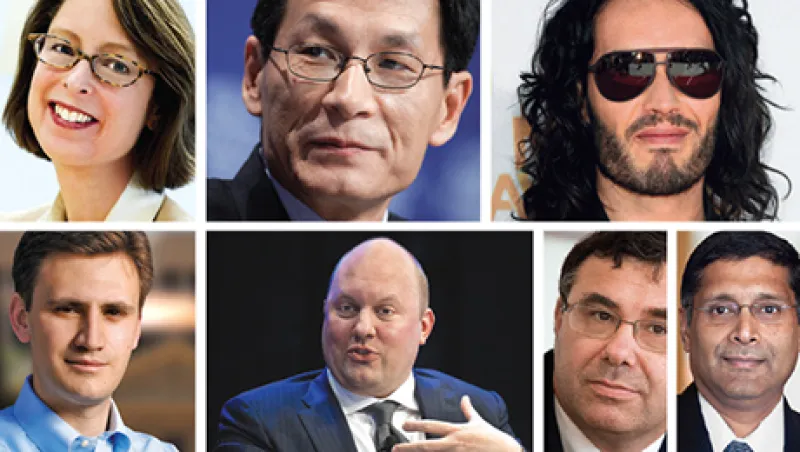
People in the News: Family Business
Russell Brand revolts; Abigail Johnson fills her dad’s shoes at Fidelity; princeling Levin Zhu exits China International Capital Corp.; and more.
Staff
November 1, 2014



